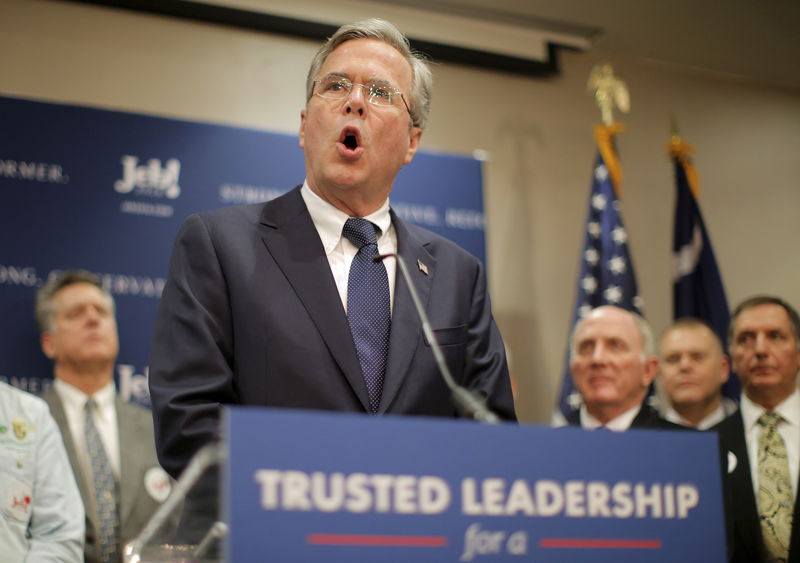By Steve Holland
WASHINGTON (Reuters) - Republican presidential candidate Jeb Bush on Monday outlined an education reform plan that would take much decision-making away from the federal government and give it to state and local school authorities.
Bush, who focused on education during his two terms as Florida governor and later as head of an education foundation, presented what was the latest in a series of detailed policy plans on major issues.
"As the nation honors Dr. Martin Luther King and his legacy today, I firmly believe that ensuring every individual has access to a quality education is the great civil rights challenge of our time," he said in a post on the website Medium. The United States on Monday marked a holiday for the slain U.S. civil rights leader.
Bush said his plan would not cost American taxpayers any more money. He would send much of the $22 billion spent on federal education programs to state and local governments and create $2,500 annual grants for low-income children to let parents decide how best to educate them.
Bush, who national polls show is trailing far behind the Republican presidential front-runners, has drawn fire from conservative voters for his position on Common Core, an initiative designed to ensure basic education standards in basic subjects such as English and mathematics.
The former Florida governor has distanced himself from Common Core, but believes every school district should have home-grown education standards to ensure children make progress.
"We will empower states with the flexibility to improve their schools, while ensuring the federal government does not interfere in academic standards, curriculum or content," Bush said.
He said "too many regulations drown the system in compliance costs, wasting valuable resources."
"We need to give states the flexibility to reform and innovate to meet the unique needs of their students," he said.

Bush said he would allow for conversion of 529 college savings accounts into Education Savings Accounts that would enable families to save tax-free for education. Charitable donations to the ESAs of low-income children would be tax-deductible.